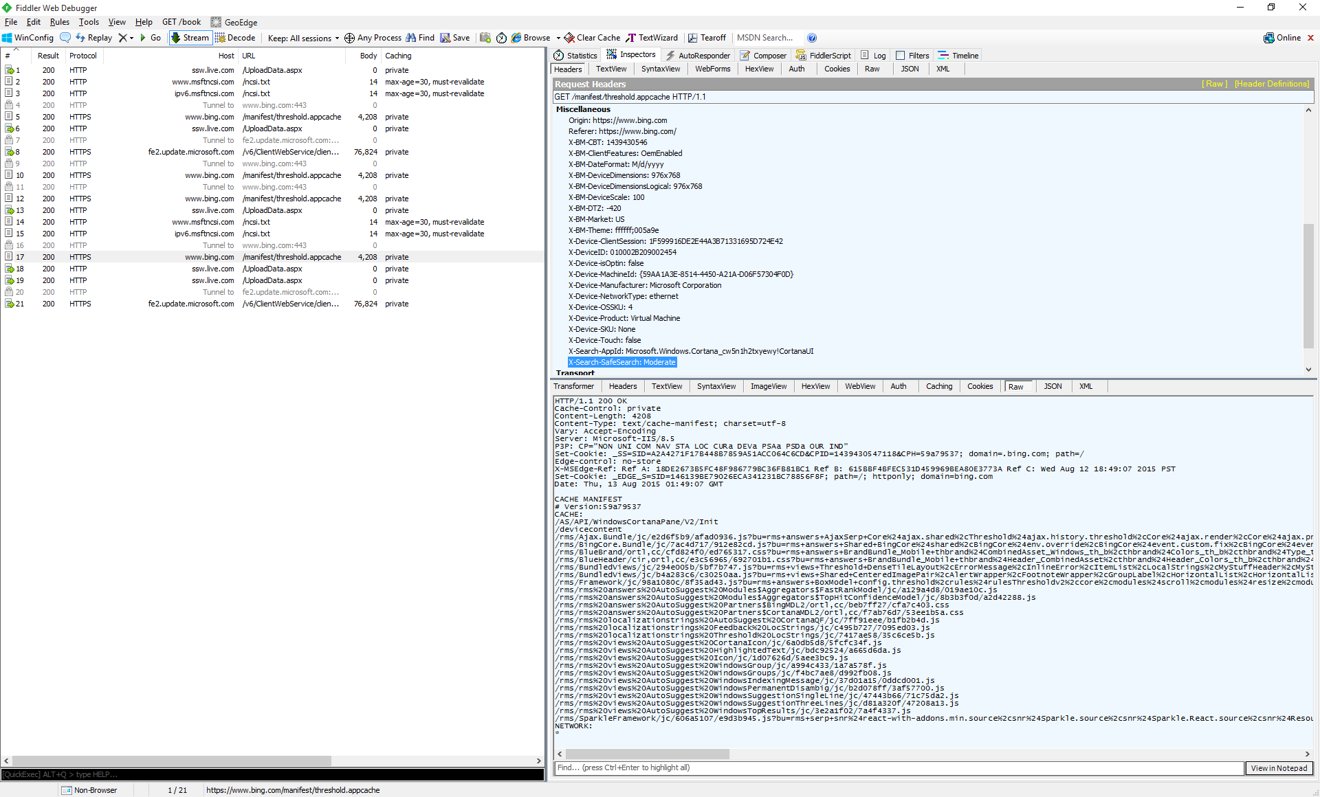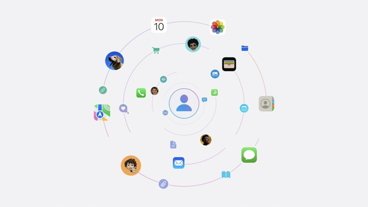Although most of the traffic appears to be innocuous, Windows 10 is still communicating with Microsoft servers even when many data privacy settings are on, a report observed on Thursday.
After disabling the operating system's Cortana assistant, and Web searches run from the Start menu, Windows 10 will still send requests to bing.com for a file with Cortana data, ArsTechnica noted. Attached to the request is a random machine ID that persists between sessions.
Elsewhere, even without live tiles pinned to the Start menu, the operating system will periodically download new tile data from Microsoft over an unencrypted HTTP connection. When using HTTP and HTTPS proxies, Windows 10 is said to bypass those connections to make requests from a content delivery network.
When connecting to a new network, Windows attempts to fetch two text files, one for IPv4 and another for IPv6, in an attempt to gauge whether that network is connected to the Internet. Such requests are however stripped-down — not even including a machine ID — and can be completely shut off with some technical knowledge.
A more serious issue is communication with what's believed to be a server for OneDrive, Microsoft's cloud storage network. Windows sends some unknown data to the server, even when OneDrive is disabled and a computer has a local-only login, ArsTechnica said. The data may involve telemetry settings, which can again be disabled by technically savvy users.
A Microsoft spokesperson reportedly explained that at least some of the controversial data involves updating Bing search, for instance to add new styles and search code.
"No query or search usage data is sent to Microsoft, in accordance with the customer's chosen privacy settings," the person said. "This also applies to searching offline for items such as apps, files and settings on the device."
Windows 10 has generally met with favorable reviews, but critics have complained that by default it shares more data than most operating systems, including Windows 8.1 or OS X Yosemite. Much of this can be turned off, but users have to make a conscious choice.
 Roger Fingas
Roger Fingas








 Marko Zivkovic
Marko Zivkovic
 Malcolm Owen
Malcolm Owen
 Charles Martin
Charles Martin
 Christine McKee
Christine McKee
 William Gallagher
William Gallagher











58 Comments
Windows 10 Is still Windows. Same crap that pushed me right to a Mac in the mid 90s. In terms of culture, attention to design, and the (de)humanizing of interfaces meant to be used by actual PEOPLE... it's the same company. Very little has changed.
When Microsoft closes a Window, it opens a backdoor...
I installed Windows 10 on my work computer. I was a little shocked at the privacy questions and settings that were presented during the install. I of course turned all requests for data to off. This article is disturbing but not entirely surprising. I had issues with booting 10, it would take two attempts to happen. My Office 2013 kept having issues that required me to repair the installation. I downloaded the first update for 10 that I was presented with and it broke Office again. Doing a repair on Office requires a reboot and this time my computer would not boot. The only thing, and thankfully so, that MS seems to have gotten right on this release was that going back to Windows 7 was seamless. I personally left the Windows world with the introduction of Vista. Strangely, their was a part of me that hoped Windows 10 would be a good thing. Alas, new CEO same old story.
including... OS X Yosemite.
Not being a "technically savvy user", technically, now I'd sort-of like to find out what info that is...
What would [URL=https://www.eff.org/deeplinks/2009/12/google-ceo-eric-schmidt-dismisses-privacy]Eric Schmidt say[/URL]? [quote]If you have something that you don't want anyone to know, maybe you shouldn't be doing it in the first place. [/quote] Problem: solved. /s